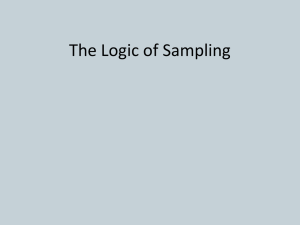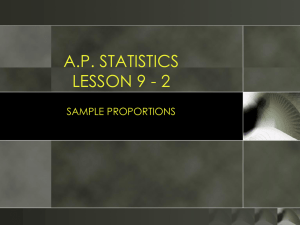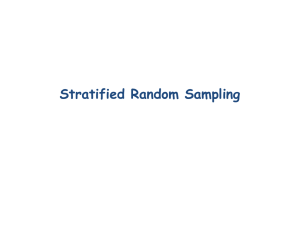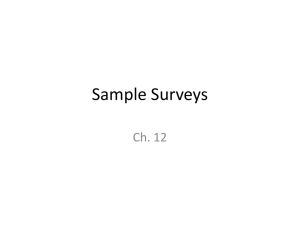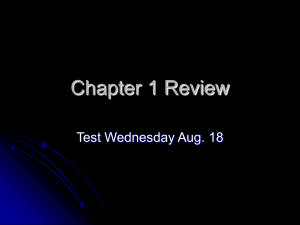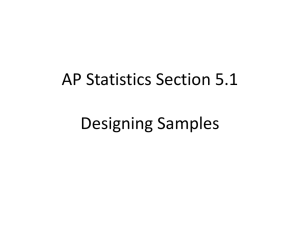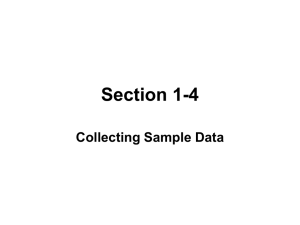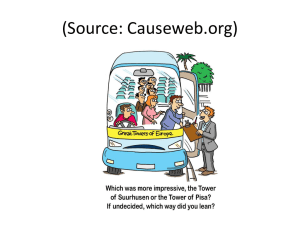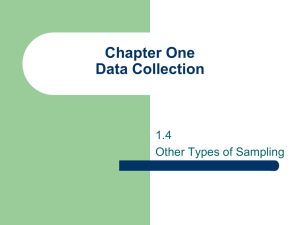Stratified Random Sample Examples
advertisement
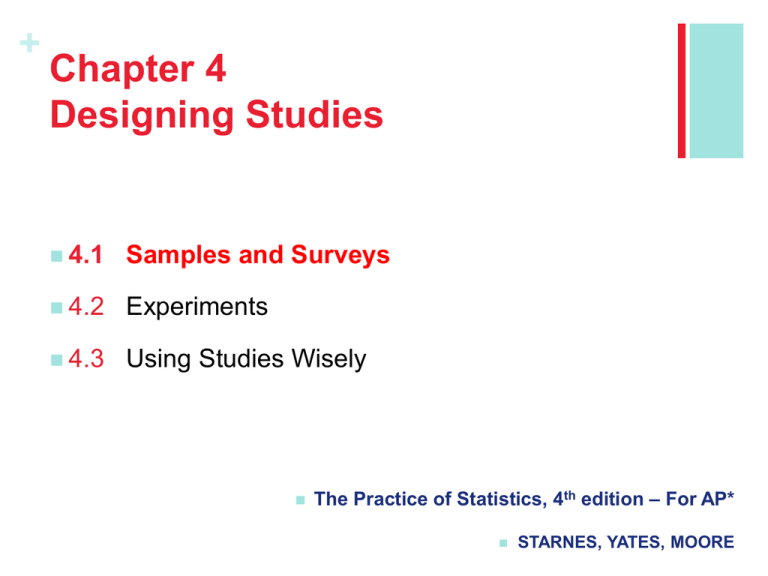
+ Chapter 4 Designing Studies 4.1 Samples and Surveys 4.2 Experiments 4.3 Using Studies Wisely The Practice of Statistics, 4th edition – For AP* STARNES, YATES, MOORE + Section 4.1 Samples and Surveys Learning Objectives After this section, you should be able to… IDENTIFY the population and sample in a sample survey IDENTIFY voluntary response samples and convenience samples DESCRIBE how to use a table of random digits to select a simple random sample (SRS) DESCRIBE simple random samples, stratified random samples, and cluster samples EXPLAIN how undercoverage, nonresponse, and question wording can lead to bias in a sample survey Convenience sample What is it? Example? What are the advantages/disadvantages? Voluntary response sample What is it? Example? What are the advantages/disadvantages? Simple random sample (SRS) What is it? Example? What are the advantages/disadvantages? Sampling and Surveys Methods We’ve Seen So Far…. + Sampling Sampling Methods The basic idea of sampling is straightforward: take an SRS from the population and use your sample results to gain information about the population. Sometimes there are statistical advantages to using more complex sampling methods. One common alternative to an SRS involves sampling important groups (called strata) within the population separately. These “sub-samples” are combined to form one stratified random sample. Definition: To select a stratified random sample, first classify the population into groups of similar individuals, called strata. Then choose a separate SRS in each stratum and combine these SRSs to form the full sample. Sampling and Surveys + Other A growing number of Americans are dropping their traditional landline phones and using cellphones exclusively. This has caused a problem for polling organizations, which in the past used only landlines when randomly selecting people for their polls. Since people who use cell phones exclusively are different in many ways from people who do not rely exclusively on cell phones, polling organizations now use a stratified sampling design that selects a random sample of cell phone users and a random sample of landline users. What is the variable for stratification? Why is stratified random sampling better than SRS in this case? The City of Chicago wants to understand its residents’ transportation habits. They recognize that the city is very segregated and that across zip codes people are different in many ways. The choose to use stratified random sampling for their survey on transportation habits. What is the variable for stratification? Why is stratified random sampling better than SRS in this case? Sampling and Surveys Random Sample Examples + Stratified Sampling Methods a stratified random sample can sometimes give more precise information about a population than an SRS, both sampling methods are hard to use when populations are large and spread out over a wide area. In that situation, we’d prefer a method that selects groups of individuals that are “near” one another. Definition: To take a cluster sample, first divide the population into smaller groups. Ideally, these clusters should mirror the characteristics of the population. Then choose an SRS of the clusters. All individuals in the chosen clusters are included in the sample. Sampling and Surveys Although + Other A large high school assigns its students to homerooms alphabetically by last name. The school administration is considering a new bell schedule and would like student input. Administrators decide to survey 200 randomly selected students. It would be hard to track down a SRS of 200 students, so the administration opts for a cluster sample of homerooms. The principal takes a simple random sample of 8 homerooms and gives the survey to all 25 students in each homeroom. Why is it better to use homeroom classes as clusters than math classes as clusters? Sampling and Surveys Sample Examples + Cluster Sampling at a School Assembly Describe how you would use the following sampling methods to select 80 students to complete a survey. (a) Simple Random Sample (b) Stratified Random Sample (c) Cluster Sample Sampling and Surveys + Example: of Sampling Methods + Advantages/Disadvantages SRS Advantages? Disadvantages? Stratified random sample Advantages? Disadvantages? Cluster sample Advantages? Disadvantages? Sampling and Surveys In your own words, summarize these notes on sampling methods. Sampling and Surveys + Summary
